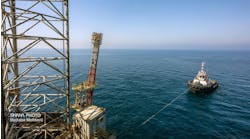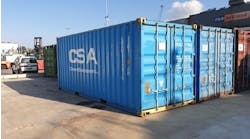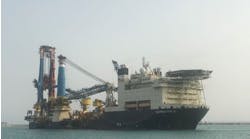Partners expand remote, autonomous capabilities of maritime industry in Middle East
Offshore staff
ABU DHABI, UAE — Fugro and AD Ports Group formalized a collaborative relationship through the signing of an agreement that sets out combined goals to utilize remote and autonomous technologies in the region.
Fugro is a geo-data specialist that supports clients in mitigating risk during the design, construction and operation of their assets, both on land and at sea. AD Ports Group is a UAE-based logistics, industry and trade facilitator, operating integrated business clusters covering digital, economic cities and free zones, logistics, maritime and ports.
The partnership aims to create a platform to implement remote and autonomous technology as well as to develop guidelines that will ensure the UAE is prepared to welcome and benefit from the use of latest industry advancements.
While the agreement formalizes the partnership between Fugro and AD Ports Group, the companies have been working together since March ahead of the arrival of the region’s first Fugro Pegasus unmanned service vehicle (USV). The USV was recently welcomed into the UAE and will be stationed at Al Mirfa Port, Abu Dhabi.
Captain Mohamed Al Yahyaei, chief harbor master, AD Ports Group said, “Through strategic collaborations, AD Ports Group brought the world’s first fully uncrewed autonomous commercial marine tugs, as well as the Middle East’s first terminal with an autonomous port truck system, to the UAE. By signing this new agreement with Fugro, we are expanding the range of remote and autonomous technologies available for the maritime sector."
The agreement addresses strategic pillars that Fugro and AD Ports Group will tackle together to make Fugro’s USV technologies a successful addition to the region. These pillars include
- Jointly developing procedures for the use and implementation of USVs in accordance with the requirements of the UAE;
- Establish an approved remote and autonomous testing site for USVs; and
- Create an industry compliant training program for Emirati nationals and international mariners, covering the operation of USVs or marine autonomous surface ships.
Automation and the use of remote technologies in the maritime sector can allow vessels and vehicles to operate more efficiently, with greater operational safety, and reduce operational costs, Fugro said. In the case of offshore vessels, automation enables vessels to operate safely in adverse weather conditions. Since 75% to 96% of marine casualties typically result from human error, increased use of automation in the maritime sector also has the potential to increase safety and reduce accidents.
11.02.2022



